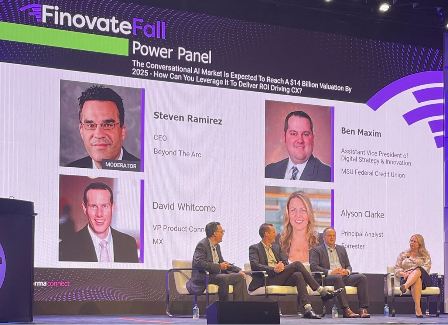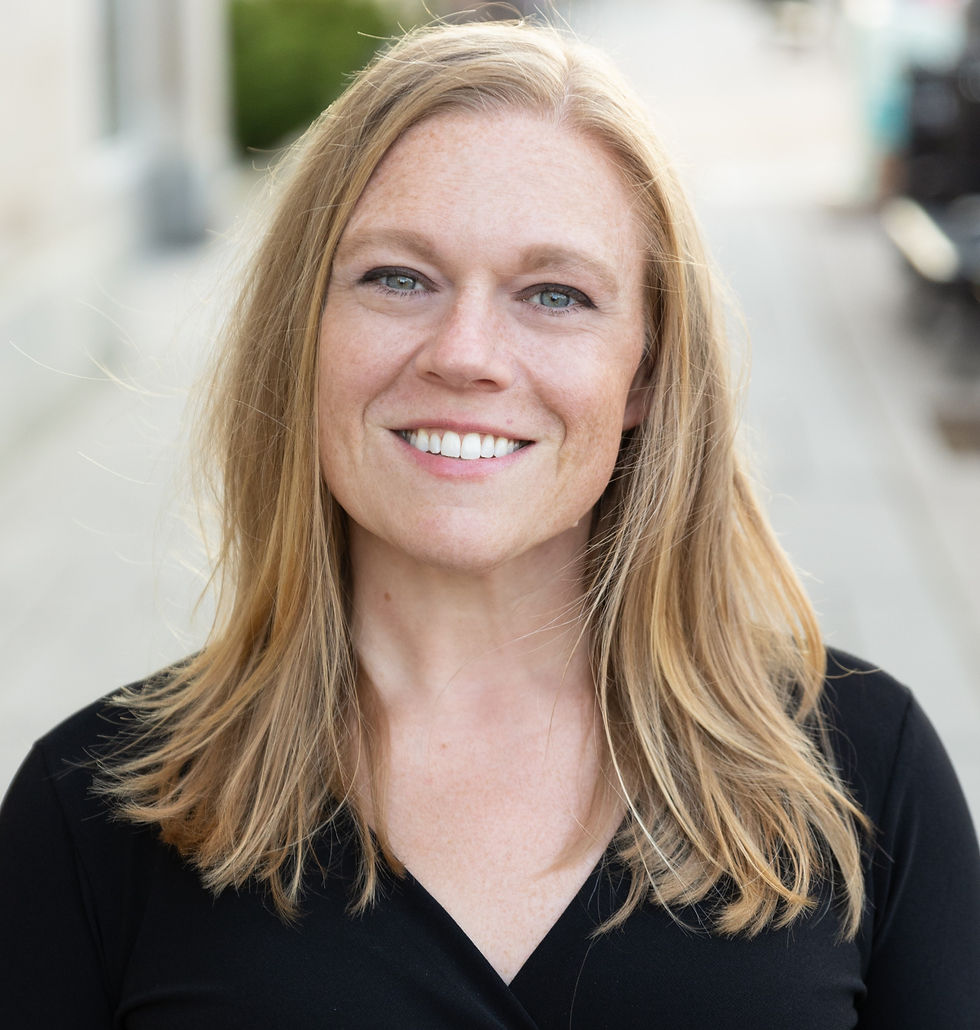FinovateFall 2021 Conference Signals a Return to Relative Normalcy
- W.B. King

- Sep 20, 2021
- 4 min read
By W.B. King
Despite COVID-19 variants and an uneasiness felt by some in the industry regarding large public gatherings, FinovateFall 2021 successfully welcomed more than 1,100 in-person vaccinated attendees during its three-day New York City -based event.
The hybrid conference, which took place September 13 to 15 at the Marriott Marquis Times Square, included more than 1,500 attendees in total and featured 75-plus fintech demoers and more than 130 speakers.
Among those in attendance was MSU Federal Credit Union’s Assistant Vice President of Digital Strategy and Innovation Ben Maxim. And while this wasn’t his first in-person event since 2020, he said it was the largest.

“It was great to attend an event like this in person and get to know the people on the other side of the Zoom screen. It was a strange feeling to have been interacting with quite a few of the attendees for the past year-plus via video, but never having actually met in real life,” said Maxim. “It was also great to get a chance to engage and in a conversation I had while at the event I described it as having the unexpected collisions of ideas and people instead of having to always schedule the interaction via video just isn’t the same.”
William Mills Agency’s CEO William E. Mills also attended the conference. Not only did he call the event a “terrific success,” he said it rivaled pre-pandemic conferences. The Atlanta -based agency has worked in the financial industry for more than 38 years and served hundreds of companies that provide products and services in the banking, payments, mortgage, credit union and related markets.
“I think the stringent vaccination requirement that New York City put in place effective September 13th makes people feel much safer. You can’t even walk into the hotel lobby without proving you are vaccinated,” said Mills. “If other financial events are in places that require vaccinations, then I think it bodes well for the industry events this fall.”

Mills also sat on the Blue Chip Panel discussing the future of open banking, cloud, API and other financial technologies. Fellow panelists included Ninth Wave’s CEO George Anderson, JPMorgan Chase’s Head of Strategy & Transformation - Wholesale Payments Digital Eileen Holcomb, Financial Data Exchange’s Managing Director Don Cardinal, and Activant Capital Investment Team Member Andrew Steele.
“I’d say a big theme was how financial institutions can create digital relationships with their customers or members and not just transactions,” Mills said about the conference. “I heard it stated multiple times: ‘It all starts with the customer.’”
William Mills Agency Senior Vice President Heather Sugg also attended the conference. She paid close attention to the keynote speeches that focused on what banking executives can do to support more non-traditional/creative income structures.

"Creative Juice was mentioned as one good example of this. Nerve, a neobank client of ours launched for musicians, is another example," she said. "I think we’ll start to see more here, and credit unions will be great at it.”
Conversational AI and Future Conferences
Among fintechs in attendance was the New York City –based Scienaptic AI, which offers an AI-powered credit decision platform provider. Vice President of Partnerships Kathryn Bonesteel said the event provided important takeaways.
“Front-end and back-end automation around the customer experience, mobile innovation, faster decisioning and the rise of AI in banking were several of the key topics covered,” she said.
Aside from fist bumps instead of handshakes and socially distant conversations, she said the conference seemed “relatively” normal.

“COVID-19 tests or vaccine cards were checked upon entry. Some attendees wore masks, others did not. There wasn’t a significant number of people. I'd say there were more vendors than banks and credit unions,” she said. “The opportunity to schedule meetings virtually and in-person tended to get confusing. Overall though, it was great to be back at a conference and connect with people face-to-face.”
Like Mills, MSU Federal Credit Union’s Maxim wasn’t only an attendee. He served as a panelist on the “Power Panel: The Conversational AI Market Is Expected To Reach A $14 Billion Valuation By 2025 - How Can You Leverage It To Deliver ROI Driving CX?”
The panel, moderated by Beyond The Arc’s CEO Steven Ramirez, also included MX’s Vice President of Product Connectivity David Whitcomb and Forrester’s Principal Analyst Alyson Clarke. Maxim said the panel received many questions during the discussion as well as attendees reaching out via LinkedIn to discuss related concepts.
“Conversational AI has the opportunity to provide more financial access and inclusion, along with financial literacy,” he said. “Additionally, conversational AI will move to providing more personalization and being more predictive in nature identifying opportunities for customers.”
Overall, Maxim said his experience was positive and worthwhile. And opposed to previous Finovate conferences, he thought there were more credit unions in the mix. Executives from Arsenal Credit Union, Bay Federal Credit Union, California Credit Union, Wescom Central Credit Union, MyPoint Credit Union and MidFlorida Credit Union were also in attendance.
FinovateFall’s website noted that 50% of attendees were from financial institutions.
“I was pleased that many of the speakers and demoing companies considered credit unions in their sessions,” said Maxim. “This shows we are making progress in becoming a legit player in the fintech space and it is not just for the big banks.”
Whether or not the traditional conferences return, remains to be seen. In Maxim's view, he hopes event organizers figure out a way to keep conferences hybrid.
"Yes you lose some of the experience, but it also broadens the reach of who can consume the ideas being shared and that is powerful. I may not attend Finovate Asia/Europe in person, but if I could attend virtually and learn from what is happening in fintech in Asia and Europe that could then be adopted to the US market perhaps way ahead of the natural flow," said Maxim. "You never know where ideas will come from and what convergence needs to exist for the next big idea to take off. Hybrid events promote the broaden of that reach and makes our industry more inclusive and that is a good thing."
If you enjoyed this article, you might like reading these Finopotamus articles as well:



